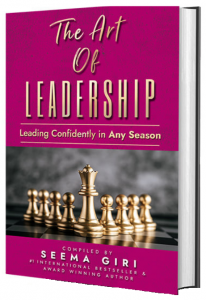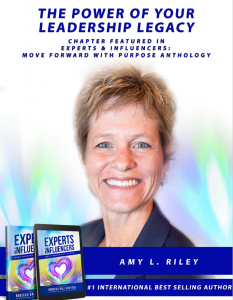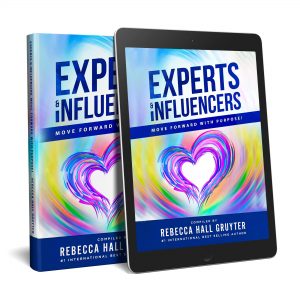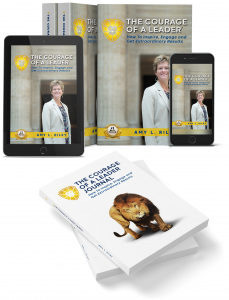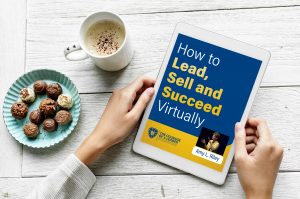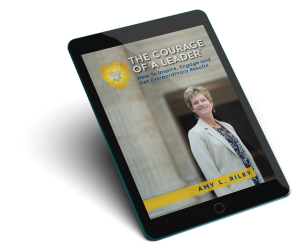Jessica Droste Yagan is the CEO of Impact Engine, and she has built a career based on her values and a clear demonstration of authenticity. We talk about how she did it, why it’s important, and how it benefits you and everyone around you.
Jessica shares her journey from McDonald’s to Impact Engine, where she manages venture capital and private equity strategies focused on sustainable and impactful investments. She recounts her moment of realization while studying urban economics, where she realized that capitalism can be used to create sustainable jobs and wealth in high poverty areas.
You can align your personal values with business success and contributing to a more transparent and impactful society – and Jessica shares with us how!
About the Guest:
Jessica Droste Yagan is the CEO of Impact Engine, an investment firm with a mission to bring more capital to a market where financial returns are linked to positive social and environmental impacts. Impact Engine manages venture capital and private equity strategies that invest in transformative for-profit, positive-impact funds and businesses.
Prior to Impact Engine, Jessica led the creation of McDonald’s Corporation’s global and U.S. sustainable sourcing strategies. At McDonald’s, she enabled the integration of ethical, environmental, and economic sustainability across all food and packaging sourcing. Jessica also worked in urban economic development through the City Advisory Practice at the Initiative for a Competitive Inner City.
Jessica has co-authored two Harvard University case studies on public-private partnerships and currently serves as a board member for the Metropolitan Planning Council, the Rustandy Center for Social Sector Innovation at Chicago Booth, and Fixer. Crain’s Chicago Business named her to its list of 40-Under-40 in 2013 and she served as a 2014Leadership Greater Chicago Fellow. Jessica holds a BA in Public Policy from Haverford College, an MBA from the Stanford University Graduate School of Business, and an MPA from the Harvard University Kennedy School of Government. She lives in Chicago with her husband and three children.
https://www.theimpactengine.com/
About the Host:
Amy L. Riley is an internationally renowned speaker, author and consultant. She has over 2 decades of experience developing leaders at all levels. Her clients include Cisco Systems, Deloitte and Barclays.
As a trusted leadership coach and consultant, Amy has worked with hundreds of leaders one-on-one, and thousands more as part of a group, to fully step into their leadership, create amazing teams and achieve extraordinary results.
Amy’s most popular keynote speeches are:
- The Courage of a Leader: The Power of a Leadership Legacy
- The Courage of a Leader: Create a Competitive Advantage with Sustainable, Results-Producing Cross-System Collaboration
- The Courage of a Leader: Accelerate Trust with Your Team, Customers and Community
- The Courage of a Leader: How to Build a Happy and Successful Hybrid Team
Her new book is a #1 international best-seller and is entitled, The Courage of a Leader: How to Inspire, Engage and Get Extraordinary Results.
https://www.linkedin.com/in/amyshoopriley/
Resources mentioned in the podcast
The Inspire Your Team to Greatness assessment (the courage assessment).
How can you inspire our team to be more proactive, take ownership and get more done?
You demonstrate and empower The Courage of a Leader. In my nearly 3 decades of work with leaders, I’ve discovered the 11 things that leaders do – even very well-intentioned leaders do – that kill productivity.
In less than 10 minutes, find out where you’re empowering and inadvertently kills productivity, and get a custom report that will tell you step by step what you need to have your team get more done.
https://courageofaleader.com/inspireyourteam/
Thanks for listening!
Thanks so much for listening to The Courage of a Leader podcast! If you got inspired and/or got valuable leadership techniques you can use from this episode and think that others could benefit from listening, please share using the social media buttons on this page.
Do you have questions or feedback about this episode? Leave a comment in the section below!
Subscribe to the podcast
If you would like to get automatic updates of new The Courage of a Leader podcast episodes, you can subscribe to the podcast on Apple Podcasts. You can also subscribe in your favorite podcast app.
Leave us an Apple Podcasts review
Ratings and reviews from our listeners are extremely valuable to us and greatly appreciated. They help our podcast rank higher on Apple Podcasts, which helps us ignite The Courage of a Leader in more leaders! Please take a minute and leave an honest review on Apple Podcasts.
Teaser for next episode
Stay tuned for our next podcast episode – The Human Connection: 4 Ways to Strengthen or Inadvertently Destroy Your Ability to Influence – with Brian Bogert.
Transcript
Jessica Droste Yagan is the CEO of Impact Engine, and Jessica has built a career based on her values and a clear demonstration of authenticity. We talk about how she did it, why it's important to be your authentic self, and how it benefits you and everyone around you. I think that you will find Jessica fascinating. I'm glad you're here.
Amy Riley:Welcome to the Courage of a Leader podcast. This is where you hear real life stories of top leaders achieving extraordinary results, and you get practical advice and techniques you can immediately apply for your own success. This is where you will get inspired and take bold, courageous action. I'm so glad you can join us. I'm your host. Amy Riley, now are you ready to step into the full power of your leadership and achieve the results you care about most? Let's ignite the Courage of a Leader.
Amy Riley:Jessica, thank you for joining me today on the Courage of a Leader podcast.
Amy Riley:Jessica Droste Yagan: Thank you for having me.
Amy Riley:Yeah, I'm excited about this conversation that we are going to have about authenticity. You and your company, impact engine, are different. You stand out in your industry. How did you come to understand who you wanted to be, because it's not necessarily a common blueprint in your in your field.
Amy Riley:Jessica Droste Yagan: Yeah. I mean, I think in terms of who I wanted to be personally, and kind of what I want to do, who I am, how I act, I feel like that's just sort of hardwired. And I'm not, I mean, I'm not a good actor, like, even if I wanted to be something else, like, I think it would be really hard for me just in terms of how I show up, I think in terms of my career path, certainly, there's no blueprint for it. You know, these are industries that I've spent my career in that didn't exist when I started my career, but I would say that I just have been very fortunate to kind of always have a kind of a common thread, or an earth star pulling me along, or keeping me kind of focused and guided. And that is my obsession with how capitalism can be a tool and be better for for the planet and for people, and so that has really kind of what's made my career authentic, I would say, is kind of that combination of like being authentically motivated to do this type of work, and then kind of the inability to be anything other than myself, or to bring energy to things that I'm not authentically motivated about. Yeah,
Amy Riley:how did your north star emerge for you?
Amy Riley:Jessica Droste Yagan: So I actually, when I was an undergrad, I majored in public policy, so I knew I wanted to make the world a better place, and I really honestly believe that in order to do that, I would have to work for government or nonprofit, and probably against capitalism, sort of the evil, you know, piece of of society. And I was very fortunate to my senior year, take a course. I cross registered from Haverford College, where I was at Wharton, which we were allowed to do. Took a course on urban economics, where I read a paper by Michael Porter from Harvard Business School. And it was this late 90s, so it was kind of one of the first sort of credible business leaders who kind of came out and said, capitalism can be a tool for good. And his paper was about applying capitalist sort of thinking and investment thinking toward creating sustainable jobs and wealth in high poverty urban areas was called the Competitive Advantage of the Inner City, and it was sort of a light bulb moment for me, and sort of like, oh, you know, why is this something we have to work against? Why isn't it something we're leveraging? And felt it felt so optimistic and promising to go down that path, because whereas governments and nonprofits have been sort of trying to solve a lot of these issues with essentially the leftovers from capitalism for so many years, sort of was a relatively new concept to sort of say, what if we use the actual engine of capitalism toward the same direction that we want to go as a society, and so that, yeah, that was the light bulb moment. I guess that helped kind of create that focus
Amy Riley:that had to be exciting. But did it also take courage to pursue that right? Because, I mean, sometimes those initial papers, those in. Initial Yeah, folks that are thinking about something in a new way, like, is it going to take is it going to take hold? Is this possible, right? Is this just a nice idea, and we're not going to be able to get a tipping point here?
Amy Riley:Jessica Droste Yagan: Yeah? I mean, I think for me, it probably took, it took courage, but courage sort of in a different way, in that, you know, I was, I was 100% convinced that was sort of the right thing to do, the right way to think about it. It took courage to go, you know, essentially, I I went and, you know, knocked on the door of the organization that Michael Porter started to bring those ideas from that paper to life. And so, like, I need to work for you. I believe in this. I want to do this. You went to the source. Yeah, I had jobs at think tanks in DC. I had offers, and that was going to be my path, and do public policy. And it was sort of tried and true. And so it wasn't so much that there was a risk in my mind that, like, the concept wasn't good. It was more just, like, to put yourself out there and say, like, I have these, like, safe job offers, but I'm going to actually go try to get somebody who doesn't have a job posting, even to, like, hire me to do this, because I just really want to do it. I would say that's probably where that took more courage and yeah, and that's kind of what led to most of my jobs in my career, is sort of just having very clear kind of belief in the call it the movement, or the idea, which gave me the conviction and the courage to then go act on it and try to, like, get other people to let me act on it. Yes,
Amy Riley:in:Amy Riley:Jessica Droste Yagan: thank you.
Amy Riley:Yeah,
Amy Riley:so tell us about
Amy Riley:who you are today. What's important about Impact Engine, what makes that authentically you
Amy Riley:Jessica Droste Yagan: Yeah, well, interestingly, and not surprisingly, one of the values at Impact Engine is authenticity. So it's, and, you know, it's probably circular in the sense that I couldn't be in an organization that doesn't share that, and also I've helped build the organization, and it's very important value to me personally. So, you know, as you kind of shared in my background, you know, today and for the last 10 years, I've been focused on impact investing, which is, you know, using the investment lens as as one tool within capitalism to apply this idea of aligning financial and social returns and and over the past 10 years, we've really been focused on, on on building out this industry, in this field, imagining a different way to build an investment firm, different way to invest, and helping to bring that to life, and hopefully helping to bring it to life with other firms, and, you know, investors as well, because we want to see the whole field grow. And that's, that's what's been happening. It doesn't really do any good if it's, it's just us, but if we could, sort of, you know, spread the word that, you know, it is possible to think this way and to do things a little bit differently. That's kind of the goal. So we've grown the past years from 1 million to about two 40 million in assets under management, and that is reflective of the growth in the industry overall, it's really great to see more and more people sort of realizing that you can really be intentional from the beginning about what am I investing in, what's happening to this capital, what is it going to do in the world? Yeah, and you could do that in a way where you can still make money. And also, you know. Have more positive impacts?
Amy Riley:Yeah, have it be that? Win, win, win. So that's the stand that you have. What challenges that Jessica, what real? You know, challenges come in day to day.
Amy Riley:Jessica Droste Yagan: Yeah. I mean, I think change is hard for people. You know, in general. This isn't the only example of that. Sure. I would say that, you know, similar to political beliefs, religious beliefs, the way people think about money and capitalism is very, very ingrained, yeah, and even though it's just a structure that was created and we decided to all believe in and there's sort of this idea, and particularly around Milton Friedman's perspective, that gained traction decades ago, around like the only role of capitalists is to make money to make profits for shareholders. That's it. Sort of ignore everything else. And I think that is what is ingrained in people's head. Is sort of like the truth, and it's sort of a wall. Sometimes there are scenarios in which that could be quite successful to think that way, in the sense of, if you think really long term, long term, I think what's good for shareholders is also what's good for society. But in today's world where a lot of investors have no idea what they own in their mutual fund, or 401, K, there's intermediaries doing it for them, yeah, many of them are not holding at all long term. Obviously, if you're holding a company for a week, you don't care what they do to employees or the environment, and it's not going to affect you and your financial outcome. If you're holding ownership in a company for a year, 10 years, 20 years, obviously, you can see how thinking about these other stakeholders is going to really matter for your financial outcomes. Yeah. And so that's that's part of, just like, finding these ways to draw the connection for people of like, when and where, does this philosophy of aligning financial and social return make sense? And part of it is, you know, time frame, part of it is kind of how engaged you are as an investor and and there's other dimensions, but breaking that down is probably the first, the first and biggest barrier,
Amy Riley:yeah, yeah, I can see that, you know, that it's this mindset, this perspective, that has been so widely held about, It's about making money and and then how many, how many different ways do we hear a version of the phrase Jessica, it's, it's not, it's not personal, it's business. Yeah, we're not supposed to bring our personal values to our business decision making. And, yeah, okay, I appreciate these levers that you're looking to longer term, right? How are people engaged with their investing, educating them about what's possible. Who are these companies? What do they stand for, right? What kind of social impact are they having? Whew. What are the benefits to anyone listening, Jessica, to be really clear about who you are, even if that means, hey, I look a little bit different than the fellow analysts next to me, or the other companies in our industry.
Amy Riley:Jessica Droste Yagan: Most of all, personally, I think it just feels good to align kind of, yeah, you believe in what you do.
Amy Riley:It's a huge benefit.
Amy Riley:Jessica Droste Yagan: I often there's a quote from Gandhi where he says, Happiness is when what you think, what you say, and what you do are in harmony. And I think that's very true. I think there's a sense of like alignment that we feel personally in ourselves, that just feels good. And I think it also really clarifies things for the people around you, like, if you're like, This is who I am, this is what I believe. Like, there's no mystery what you get if you want to work with me or be my friend, or, you know, join into something I'm working on, like, it sort of is what it is. And I think that kind of clarity can be really useful in our society, which is sometimes not as transparent. And I think to your point about allowing people to bring their values to their business work, being able to draw the connection between their values and successful financial returns is what allows that connection to be created. Because, I mean, I can't tell you how many times I sort of talk to people where it's like they're almost saying explicitly or implicitly. I wish I could bring my values to work, like I have these values, but I can't, because this is business. This is investing. They're not allowed to. And I think when you show them legal examples of actually, here's how these things can go together, here's how you can actually do both. You're not giving up business success, and you're not giving up financial returns. You're adding in, and you're looking for where they work together. It's like almost freeing to them of like, oh, I can bring these parts together. Like I can live sort of with one brain. And it's I love seeing people kind of get the enjoyment out of that personally, aside from, like, moving capital in this way, which inspires me.
Amy Riley:So can you give us one of those examples, Jessica, like, if someone's listening and, you know, they've got money invested in it in a certain way, like, how, how can they start to get more engaged, more intentional about how they invest?
Amy Riley:Jessica Droste Yagan: Yeah, for sure. And I would say this could apply to any even, whether they're investing or they're in a corporation and they have some kind of role where they can kind of look for these overlaps, but great. So for example, in the Impact Engine portfolio, we look for business models where positive impact is what's driving sales, what's driving financial returns. So for example, we have an investment in a company that sells software to grocery store chains to reduce food waste. So it's essentially an inventory management software. It helps you, it helps them know what to order and put on the produce shelves that's going to actually sell versus get wasted. So it allows them to increase their sales, reduce their waste. So that's obviously the financial case, yep, and the more they reduce waste, the more environmental impact they're having. The sort of win, win. Or we have an education technology company where, you know, it's a education software that you know is actually shows, shown through research and a randomized control trial to be extremely effective for kids to reduce reading loss. So it's a tutoring and literacy software, yeah, and the fact that they can prove that it is a positively impactful product actually helps them sell more to school districts who need to improve literacy laws, or close the gap of literacy. So look for that kind of connection between the two, where it's not I give a percent back to charity or buy one, give one, it's like the the product itself that drives revenues and sales is also the very thing that creates the positive impact. So that kind of removes potential tension, where, if it's a we'll get back to charity, then it's sort of like, okay, well, we don't know what the impact is of the product. And if you have a bad quarter or a year, you're probably going to cut back on the charity. If the impact is driving your business success, you're going to protect it. You're going to scale it,
Amy Riley:yeah, yeah, yeah, those wheels are rolling in the same direction,
Amy Riley:Jessica Droste Yagan: yeah,
Amy Riley:yeah. So Jessica, am I hearing like, you know, as we're taking in our news, as we're hearing about businesses, as we're talking with just neighbors and friends and people that we know, like we are on the lookout for companies where their positive impact drive sales. We can also be asking our business advisors and looking at our portfolio, and who are these companies like you know, dig in. Is there?
Amy Riley:Jessica Droste Yagan: Who are the companies? What are the what are the things in your function, wherever you are, or while you're playing in your business. I mean, an example from supply chain, you know, where I've spent almost 10 years as well. McDonald's wants to, obviously, protect quality and food safety, reduce costs, improve resiliency, right? You can't have interruptions where you can't serve something, or people come to McDonald's, you have to, have to have it, you know. So, an example there, from my time at McDonald's is a coffee supply chain where, you know, most of the coffee is coming from Central America, for the US coffee blend, a lot of Central American farmers were, you know, not making enough money to invest in their farms, protect quality and food safety, keep their kids there to teach them farming, as opposed to sending them to the city to get some kind of other job. So their supply chain was at risk, right? It's more at risk for disease. It's more at risk for some other kind of threat, to continuation, to be able to produce that coffee. So McDonald's invested in technical assistance programs for coffee farmers in Central America in order to improve quality yield that should improve their profits, but also the resiliency of that supply chain. So that's an example of where. Or, you know, you're sort of in this role, and you're thinking like, how, how do I protect this important business asset, which is a resilient supply chain? And then you find these ways in which answering that question overlaps with humans and planet and and and protecting them at the same time,
Amy Riley:yeah, protecting those relationships. So, I mean, we can look at suppliers, we can look at vendors. We can look at whom we supply, right, who our customers are, if we're somewhere in the middle of that chain, yeah, to the consumer, right and yeah, what are, what are their practices? What is, what's their outlook, for their longevity, what are their business practices? All of that, I love that invitation for us all. I like that we're tying this to authenticity and what's important to us. Like this all ties to our values. And I'm I am glad to know that in our marketplace today, values is a more prevalent conversation than it once was. And it's not rocket science, it's some reflection and some time with yourself, folks, right? Really get at what's what's core to you, right? What, what excites you, what's important to you. When things are working in your life. Your values are naturally present there. So keep looking, keep observing, identify those values for yourself, and then how do you create and encourage the relationships that are going to help fulfill on your values? I want to loop back to the benefits, Jessica, because you said it feels good. You know, I talk with many leaders that are looking to influence things, with their teams, or with their team members, their division or direction they're taking at things. And, you know, sometimes we don't have complete control, but we're trying to influence things and and we're trying, and it's all about, I've said this many times, how do you feel when you put your head on the pillow at night? Right? And we know when we know that we have business relationships that are also fueling our individual values,
Amy Riley:Jessica Droste Yagan: that feels great. It does Yes, yeah. It's also fun to tell your kids about.
Amy Riley:Oh, good, yeah, Mom, what do you do for work? What's important about that? Yeah, you have pre teen and teenagers. What kinds of conversations do you have with them.
Amy Riley:Jessica Droste Yagan: We talk a lot about just kind of whatever they're doing, whatever they're working on, or whatever path they choose for career, that it's important to matter. So matter is one of our family values. And sort of, we try to explain it as like, you know, have it make a positive difference that you were there, and it doesn't really matter what industry, what role you can really be anywhere, right? It could apply to anything, but kind of take it upon yourself to ask, like, what, what can I do in this role that really matters, that like, makes things better. And I think being able to share, my husband and I both like and this is kind of how we do that, or how we try to do that, having it be like a shared responsibility or goal really helps, as opposed to obviously, like saying, oh, you should go do this. And they're like, you know how, like, What are you talking about? Like, you're not doing that. But now we can be like, No, here's how we're doing it,
Amy Riley:yeah. What's important to you, right? And how do you exactly matter? Yeah. And Jessica, if we do look across your career, you have found ways to show up and make the kind of difference that you've wanted to make in in the city, in a food industry, in the financial industry,
Amy Riley:Jessica Droste Yagan: yeah, I'm trying.
Amy Riley:Indeed you are all right. What advice would you give Jessica to a leader that is, you know, just has been in the churn, doing the work right. And they might wake up one day and be like, Oh my gosh. I'm not sure that what I does, what I do, matters anymore. Like, I want to be more intentional. I want to be more authentic here, but I, you know, I'm in the midst of, like, responsibilities and projects rolling forward. What advice would you give? How do they have a light bulb moment? I
Amy Riley:Jessica Droste Yagan: think there's a couple of potential directions, right? I think for some people, for whatever reason, they can't make a fundamental change to the pace of their life or. Job they're in, you know, they're supporting other people, or maybe they don't have a lot of options. Yeah, I think even in that case, there's always options to how you show up in that role that you're in right now. So even without changing jobs or careers, how do you show up for your teammates, for the people you work for, for other stakeholders, and are there things you could do there without fundamentally changing anything about the structure that could give you more of that feeling of matter and alignment with values? I think there are people who who have choices, but for for whom it's just too overwhelming meaning they could have choices, but the idea of, like, Oh, I've been in this career or this company so many years, and like, it's kind of scary to what is even out there. Would anybody else hire me? What else could I do? What does that mean? I guess for those people, if you have choices, I would really encourage you to at least explore them. Yes, at least explore them, even if you don't act, yeah, really put some actual time into reading, talking to people, following what does sound really compelling to you, and just seeing what happens. Because I think I talked to a lot of people who are in this latter position of, like, I want to do something impactful, kind of, here's my background, like, where do I go? And I there's never, ever been an example of someone I had that conversation with where we couldn't come up in like, a 30 minute conversation with several paths to go down, yeah, other people to talk to, things to explore that were very relevant and connected to where they're coming from, and could be a place to go. Yeah, that feels better to them. So yeah, I think there's sort of, I guess there's just more than you think, maybe more than you think, out there. That's,
Amy Riley:I love that, Jessica, because that's, that's really two pronged. What you said, look at how you can show up differently where you are, right? If you've got a value of collaboration, right, how do you, yeah, show up differently for that. If you've got a value of respect and you're just taking time to listen to team members, right there, there are ways that you can intentionally show up in the environment that you're in, yeah, and if you've got choices to explore, explore them, read about them, talk to other people, right? Like, I just kind of wondered, you know, what it would be like in that industry? Well, who do we know who talk to do some exploration? Because, yeah, it's it's worth it to feel personally fueled by what's most important to us day to day. And we can really intentionally bring that and we can see if there are ways that we can set ourselves up inside of a system, a structure, a role, an organization, where it's easier to demonstrate our values day to day. Absolutely, Jessica, that's a really great note to end on. Thank you so much for joining me on the Courage of a Leader podcast today.
Amy Riley:Jessica Droste Yagan: I'm honored to be here. Thank you for including me.
Amy Riley:Thank you for listening to the Courage of a Leader podcast. If you'd like to further explore this episode's topic, please reach out to me through the Courage of a Leader website @ www.courageofalleader.com I I'd love to hear from you. Please take the time to leave a review on iTunes that helps us expand our reach and get more people fully stepping into their leadership potential. Until next time, be bold and be brave, because you've got the courage of a leader.


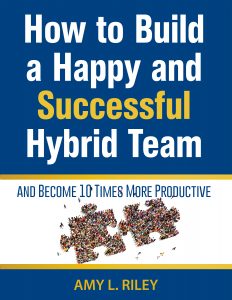
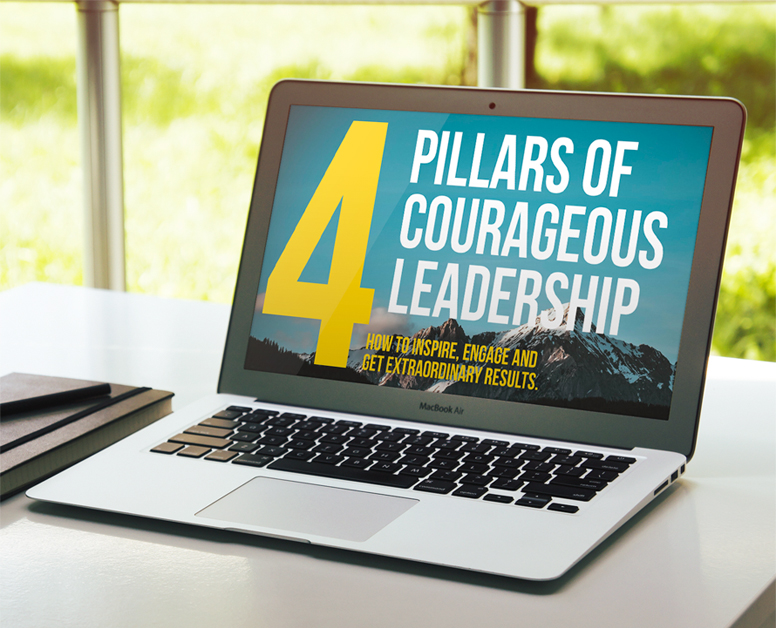 A Summary of The Courage of a Leader® 4 Pillars
A Summary of The Courage of a Leader® 4 Pillars